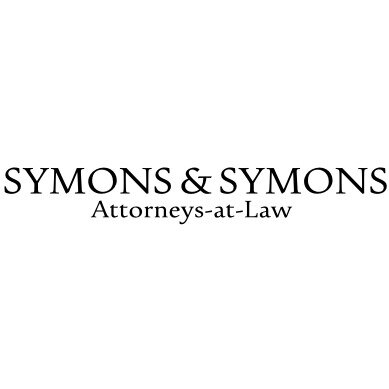Best Mining Law Lawyers in Cayman Islands
Share your needs with us, get contacted by law firms.
Free. Takes 2 min.
Or refine your search by selecting a city:
List of the best lawyers in Cayman Islands
About Mining Law in Cayman Islands
Mining law in the Cayman Islands concerns the legal framework regulating the extraction of minerals and other geological materials from the land. This area of law addresses ownership rights, licensing, environmental preservation, and the use of land for mining activities. While the Cayman Islands are not known as a major center for mining activity, the legal foundation does exist to address potential mineral discovery, sand dredging, and quarry operations. The law also considers the protection of the natural environment, reflecting the island's commitment to sustainable development.
Why You May Need a Lawyer
Legal assistance in mining law can be essential for several reasons. You may require a lawyer if you are considering investing in or establishing a mining project, seeking guidance on regulatory compliance, involved in a dispute over land or mineral rights, facing enforcement action from regulatory authorities, or interested in environmental and planning issues related to mining activities. A lawyer can also help navigate contracts, licensing applications, negotiations with government bodies, community relations, and potential litigation.
Local Laws Overview
In the Cayman Islands, all land-based and coastal mineral extraction is governed primarily by the Quarry Law and allied environmental and planning statutes. Key considerations include:
- Licensing and permitting are required for any quarrying or mining operations. There are strict requirements and application processes administered by the government.
- The right to extract minerals is generally reserved to the Crown, and permission must be sought from the appropriate authorities.
- Environmental protection laws are strongly enforced to guard against land degradation, erosion, and damage to marine areas.
- Land use and zoning laws dictate where mining or quarry activities can legally take place.
- There are penalties for non-compliance, including fines and the revocation of licenses.
- Ongoing consultation may be required with planning and environmental agencies as operations proceed.
Frequently Asked Questions
What minerals or materials are commonly extracted in the Cayman Islands?
The Cayman Islands primarily see the extraction of construction materials such as sand, marl, and limestone through quarrying. There is little to no large-scale mining of metal ores or precious minerals.
Is there a specific agency that regulates mining activities?
Yes. The Planning Department, along with the Department of Environment, plays a central role in permitting and regulating mining and quarry activities.
Do I need a government license to operate a quarry or extract minerals?
Yes. A license or permit must be obtained from the relevant government authorities before undertaking any quarrying or mining activities. Operating without a permit is illegal.
Who owns the mineral rights to land in the Cayman Islands?
Mineral rights are typically vested in the Crown, regardless of private land ownership. Private individuals or companies must seek permission from the government to mine any materials.
Are there laws regarding environmental restoration after mining operations?
Yes. Operators are often required to submit restoration or remediation plans as part of their license obligations and must restore the land at the end of extraction.
Can foreign companies invest in mining in the Cayman Islands?
Foreign investment is generally permitted, subject to compliance with licensing requirements, local company laws, and any sector-specific regulations.
What legal recourse exists if there is a dispute over mining rights?
Disputes may be resolved through negotiations, mediation, or, where necessary, litigation in the local courts. Legal representation is advised to protect your interests.
Are there significant penalties for violating mining laws?
Yes. Penalties can include substantial fines, cessation orders, suspension or revocation of licenses, and obligations to remediate environmental damage.
How are communities consulted or affected by mining activities?
Community consultation may be required during the planning and permitting process, particularly if operations may affect neighboring properties or the environment.
What role do planning or zoning laws play in mining?
Planning and zoning laws establish where mining and quarrying activities can be legally conducted. Applications must be reviewed and approved before operations can begin.
Additional Resources
People seeking guidance on mining law issues in the Cayman Islands may find the following resources helpful:
- Cayman Islands Planning Department - The primary body overseeing licensing and zoning for quarry and mining operations.
- Department of Environment - Provides guidance on environmental protection and impact assessment requirements for extractive activities.
- Legal Practitioners Association - Offers directories of local lawyers with experience in land, environmental, and mining law.
- Ministry of District Administration, Tourism and Transport - Regulates some aspects of land use and development.
Next Steps
If you believe you have a legal issue relating to mining law in the Cayman Islands, consider the following steps:
- Gather all documentation related to your case, including any correspondence with government authorities, permit applications, or contracts.
- Contact a qualified local lawyer with expertise in mining, land, and environmental law. They can provide initial advice and explain relevant procedures.
- Review your obligations under existing permits or licenses to ensure compliance and avoid potential penalties.
- If you are considering a new project, consult with the Planning Department early in the process to fully understand regulatory requirements.
- Stay informed about changes in local laws and guidelines by following government announcements and updates from professional legal organizations.
Legal representation can help ensure your interests are properly protected and guide you through what can be a complex regulatory process. Early involvement of a specialist lawyer increases your chance of a successful outcome whether you are planning, defending, or investing in mining activities.
Lawzana helps you find the best lawyers and law firms in Cayman Islands through a curated and pre-screened list of qualified legal professionals. Our platform offers rankings and detailed profiles of attorneys and law firms, allowing you to compare based on practice areas, including Mining Law, experience, and client feedback.
Each profile includes a description of the firm's areas of practice, client reviews, team members and partners, year of establishment, spoken languages, office locations, contact information, social media presence, and any published articles or resources. Most firms on our platform speak English and are experienced in both local and international legal matters.
Get a quote from top-rated law firms in Cayman Islands — quickly, securely, and without unnecessary hassle.
Disclaimer:
The information provided on this page is for general informational purposes only and does not constitute legal advice. While we strive to ensure the accuracy and relevance of the content, legal information may change over time, and interpretations of the law can vary. You should always consult with a qualified legal professional for advice specific to your situation.
We disclaim all liability for actions taken or not taken based on the content of this page. If you believe any information is incorrect or outdated, please contact us, and we will review and update it where appropriate.
Browse mining law law firms by city in Cayman Islands
Refine your search by selecting a city.

















